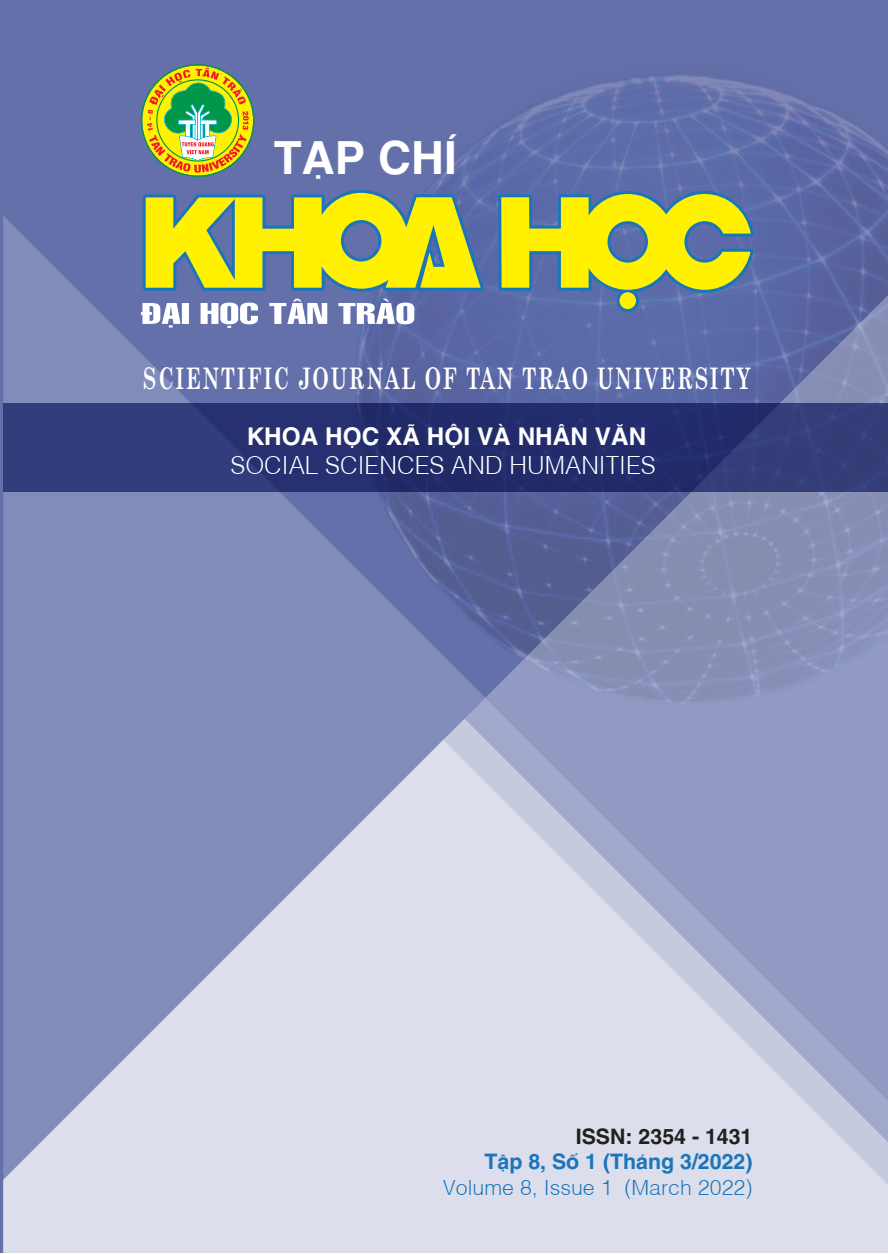HIỆU LỰC VÀ ĐÁP ỨNG CỦA CÁC TỔ CHỨC QUẢN TRỊ - QUAN ĐIỂM CỦA CÁN BỘ QUẢN LÝ, GIÁO VIÊN, PHỤ HUYNH VÀ HỌC SINH CÁC CƠ SỞ GIÁO DỤC PHỔ THÔNG Ở VIỆT NAM
DOI:
https://doi.org/10.51453/2354-1431/2022/710Từ khóa:
bá»™ pháºn quản trị, cÆ¡ sở giáo dục phổ thông, đáp ứng, hiệu quảTóm tắt
Trong ba thập kỷ qua, quản trị giáo dục nói chung và quản trị nhà trường nói riêng đã phát triển mạnh mẽ, đặc biệt khi giáo dục Việt Nam đang trong quá trình đổi mới căn bản toàn diện. Nghiên cứu này giải thích tính chất đáp ứng và hiệu quả của các tổ chức quản trị ở các cấp và ở nhà trường, căn cứ theo các thông tin thu thập từ cán bộ quản lý, giáo viên, phụ huynh và học sinh các cơ sở giáo dục phổ thông. Các phát hiện chỉ ra các tổ chức quản trị đang phát triển cả về mức độ đáp ứng và hiệu quả. Kết quả nghiên cứu cũng chỉ ra rằng các bộ phận quản trị ngày càng quan trọng và các trường phổ thông nên bắt kịp sự thay đổi nhanh chóng và quan trọng của quản trị nhà trường và quản trị giáo dục.
Tải xuống
Tài liệu tham khảo
[1] Huyen D.T.T. (2017). The school autonomy and accountability in systematic approach towards to the better educational achievements.
[2] Huong. T.H; C. C. T. (2017). The autonomy and accountability of the school in a systematic approach to better educational achievements are the autonomy and accountability of the school.
[3] International Fund for Agricultural Development. (1999). Good governance: An Overview.
[4] Maria Balarin, Steve Brammer, Chris James, M. M. (2008). The School Governance Study.
[5] McCrone, T., & George, C. S. N. (2011). Governance models in schools.
[6] National Association of Independent Schools. (n.d.). Governance Models.
[7] Hung N.T (2016). Decentralization of general education
[8] OECD. (2013). School Governance, Assessments and Accountability: Vol. IV.
[9] Tien P.Đ.N (2017). The right of autonomy of school governance: present and things to do.
[10] Sheng, Y. K. (2009). What is Good Governance? United Nations Economic and Social Commission for Asia and the Pacific.
[11] The World Bank. (n.d.). School good governance—Frequently Asked Questions. 7–8.
[12] Wilkinson, B. N. (2017). School Governance. 08072, 1–10.
[13] Yap Kioe Sheng. (n.d.). What is Good Governance ?
Tải xuống
Đã Xuất bản
Cách trích dẫn
Số
Chuyên mục
Giấy phép

Tác phẩm này được cấp phép theo Giấy phép Quốc tế Creative Commons Attribution-ShareAlike 4.0 .
Bài báo được xuất bản ở Tạp chí Khoa học Đại học Tân Trào được cấp phép theo giấy phép Ghi công - Chia sẻ tương tự 4.0 Quốc tế (CC BY-SA). Theo đó, các tác giả khác có thể sao chép, chuyển đổi hay phân phối lại các bài báo này với mục đích hợp pháp trên mọi phương tiện, với điều kiện họ trích dẫn tác giả, Tạp chí Khoa học Đại học Tân Trào và đường link đến bản quyền; nêu rõ các thay đổi đã thực hiện và các nghiên cứu đăng lại được tiến hành theo cùng một bản quyền.
Bản quyền bài báo thuộc về các tác giả, không hạn chế số lượng. Tạp chí Khoa học Tân Trào được cấp giấy phép không độc quyền để xuất bản bài báo với tư cách nhà xuất bản nguồn, kèm theo quyền thương mại để in các bài báo cung cấp cho các thư viện và cá nhân.
Mặc dù các điều khoản của giấy phép CC BY-SA không dành cho các tác giả (với tư cách là người giữ bản quyền của bài báo, họ không bị hạn chế về quyền hạn), khi gửi bài tới Tạp chí Khoa học Đại học Tân Trào, tác giả cần đáp ứng quyền của độc giả, và cần cấp quyền cho bên thứ 3 sử dụng bài báo của họ trong phạm vi của giấy phép.






